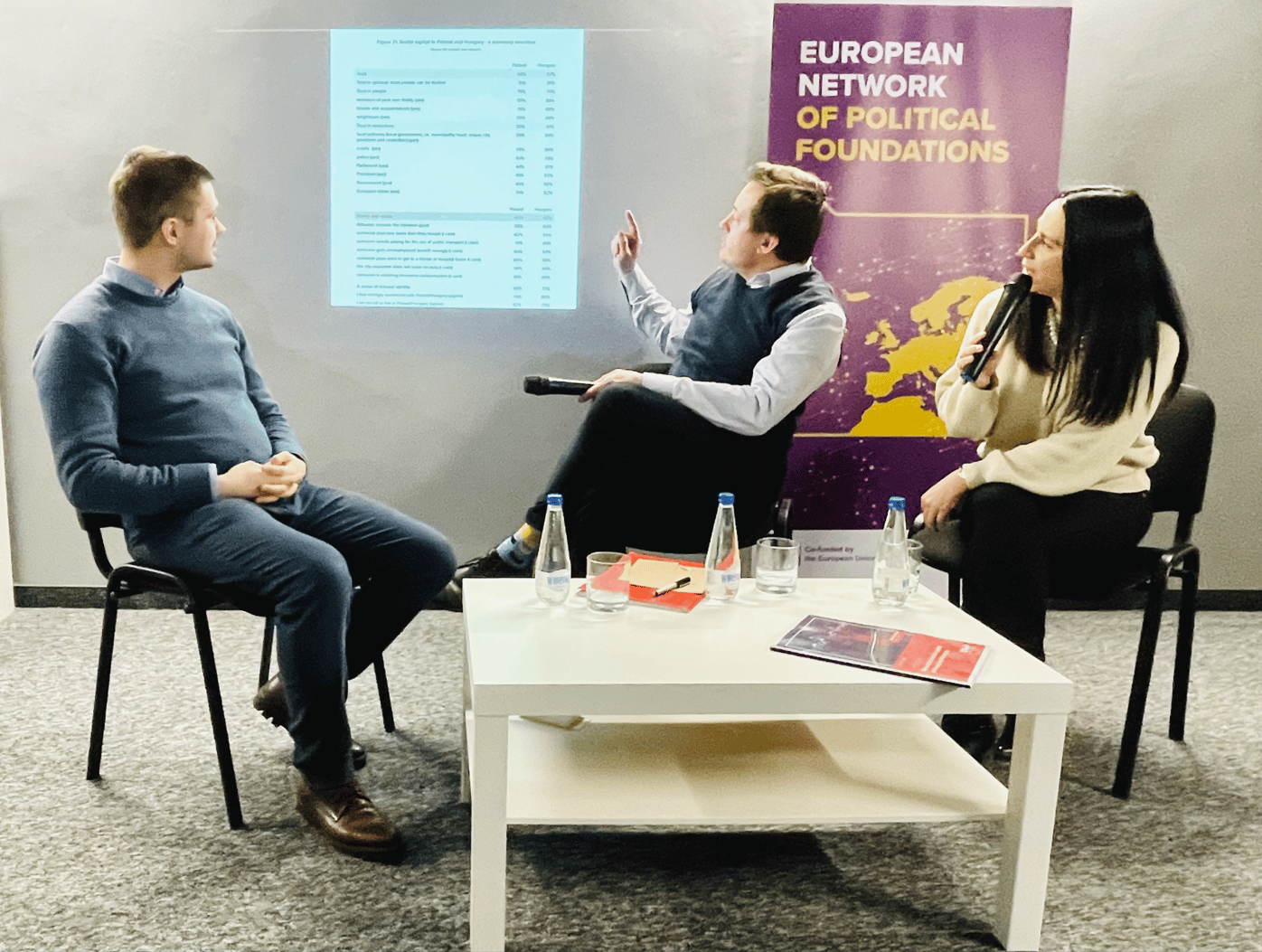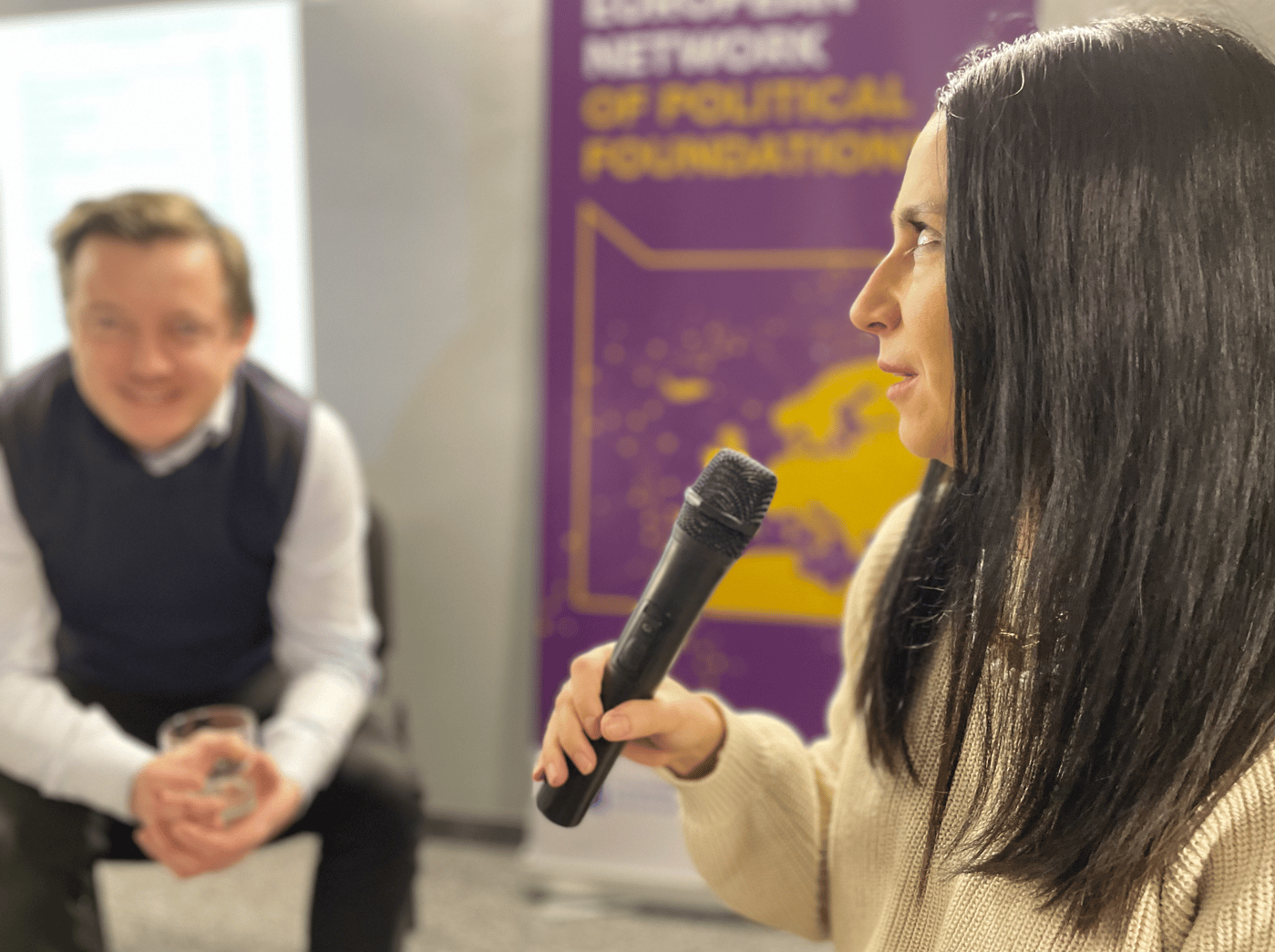Launch event | Research on Social Capital in Poland and Hungary

The launch event of the ENoP publication ‘Research on social capital in Poland and Hungary” took place in Poznań, Poland, on January 20, 2023. The publication was part of the project ‘Social Capital in the Times of Cholera’ managed by Projekt: Polska.
The event started with a word of welcome by dr. Milosz Hodun, president of Projekt: Polska and member of the Steering Committee of ENoP.
Open remarks were given by dr .Daniel Mikecz, senior researcher at the Republikon Institute from Budapest. He gave theoretical introduction to the topic of social trust and outlined a historical overview explaining the current – poor – state of social trust in Central Europe.
The presentation was given by two authors of the report, dr. Krzysztof Mączka from the Adam Mickiewicz University and independent researcher dr. Maciej Milewicz. Dr. Mączka focused on low level of trust among both Poles and Hungarians. “Hungarians trust institutions more and the most trustworthy for them are institutions that are not directly associated with politics, namely the police and courts; while Poles declare the highest trust in the European Union”, he said. According to the researcher the low social capital in terms of trust can be linked to the high social polarization visible in both countries, which leads to weakened social ties, conflicts and inadequate functioning of public administration. “This is a very serious challenge that will affect the future of the entire region. It must addressed immediately not only by state authorities but also by the civic society and academia”, Mączka concluded. Dr. Milewicz added that the role of political foundations in the process of rebuilding social trust is obvious. They “play a crucial role in meeting it. Their main task is to organize spaces and create opportunities for acting horizontally by including representatives of various backgrounds and breaking through the existing information and ideological bubbles”, he stressed, adding that “we need solutions and these solutions must be build upon a substantive dialogue”.


